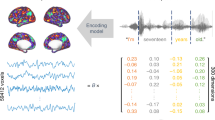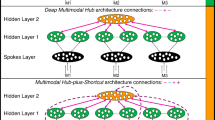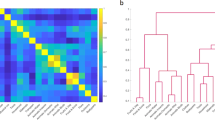Abstract
Patients with cerebral lesions offer a unique opportunity to investigate the organization of meaning systems in the brain. Clinical neurologists have long been aware that knowledge of particular classes or categories of information may be selectively impaired in some cases and selectively spared in others. For example, knowledge of letters, colours, objects, or people may be lost as a consequence of damage to the left hemisphere of the brain1–4. Recently there has been quantitative evidence for even more specific impairment and preservation of particular classes of knowledge5–8. More recently the evidence for knowledge of living things as compared with inanimate objects is particularly striking9–12. Such observations have suggested that our semantic knowledge base is categorical in its organization. In this preliminary report, we describe a patient whose semantic knowledge deficit was not only category specific, but also modality specific. Although his knowledge of the visual world was almost entirely normal, his knowledge of living things (but not objects!) was gravely impaired when assessed in the verbal domain. These findings call into question the widely accepted view that the brain has a single all-purpose meaning store13.
This is a preview of subscription content, access via your institution
Access options
Subscribe to this journal
Receive 51 print issues and online access
$199.00 per year
only $3.90 per issue
Buy this article
- Purchase on Springer Link
- Instant access to full article PDF
Prices may be subject to local taxes which are calculated during checkout
Similar content being viewed by others
References
Lissauer, H. Cognitive Neuropsychol. 5, 153–192 (1988).
Nielson, J. M. in Memory and Amnesia (San Lucas, Los Angeles, 1958).
Konorski, J. in Integrative activity of the brain: An interdisciplinary approach (University of Chicago Press, 1967).
Coughlan, A. K. & Warrington, E. K. Brain 101, 163–185 (1978).
Warrington, E. K. Quart. J. exp. Psychol. 27, 635–657 (1975).
Goodglass, H. & Budin, C. Neuropsychologia 26, 67–78 (1988).
McCarthy, R. A. & Warrington, E. K. Neuropsychologia 23, 709–727 (1985).
Hart, J., Berndt, R. S. & Caramazza, A. Nature 316, 439–440 (1985).
Warrington, E. K. & McCarthy, R. A. Brain 106, 859–878 (1983).
Warrington, E. K. & McCarthy, R. A. Brain 110, 1273–1296 (1987).
Warrington, E. K. & Shallice, T. Brain 107, 829–853 (1984).
Sartori, G. & Job, R. Cognitive Neuropsychol. 5, 105–132 (1988).
Riddoch, M. J., Humphreys, G. W., Coltheart, M. & Funnell, E. Cognitive Neuropsychol. 5, 3–25 (1988).
McCarthy, R. A. & Warrington, E. K. J. Neurol. Neurosurg. Psychiat. 49, 1233–1240 (1986).
Author information
Authors and Affiliations
Rights and permissions
About this article
Cite this article
McCarthy, R., Warrington, E. Evidence for modality-specific meaning systems in the brain. Nature 334, 428–430 (1988). https://doi.org/10.1038/334428a0
Received:
Accepted:
Published:
Issue Date:
DOI: https://doi.org/10.1038/334428a0
This article is cited by
-
Visual cortex recruitment during language processing in blind individuals is explained by Hebbian learning
Scientific Reports (2019)
-
Grounded understanding of abstract concepts: The case of STEM learning
Cognitive Research: Principles and Implications (2017)
-
Disentangling Linguistic Modality Effects in Semantic Processing
Journal of Psycholinguistic Research (2017)
-
Developmental cognitive neuroscience of arithmetic: implications for learning and education
ZDM (2010)
-
Computational investigation of early child language acquisition using multimodal neural networks: a review of three models
Artificial Intelligence Review (2009)
Comments
By submitting a comment you agree to abide by our Terms and Community Guidelines. If you find something abusive or that does not comply with our terms or guidelines please flag it as inappropriate.



